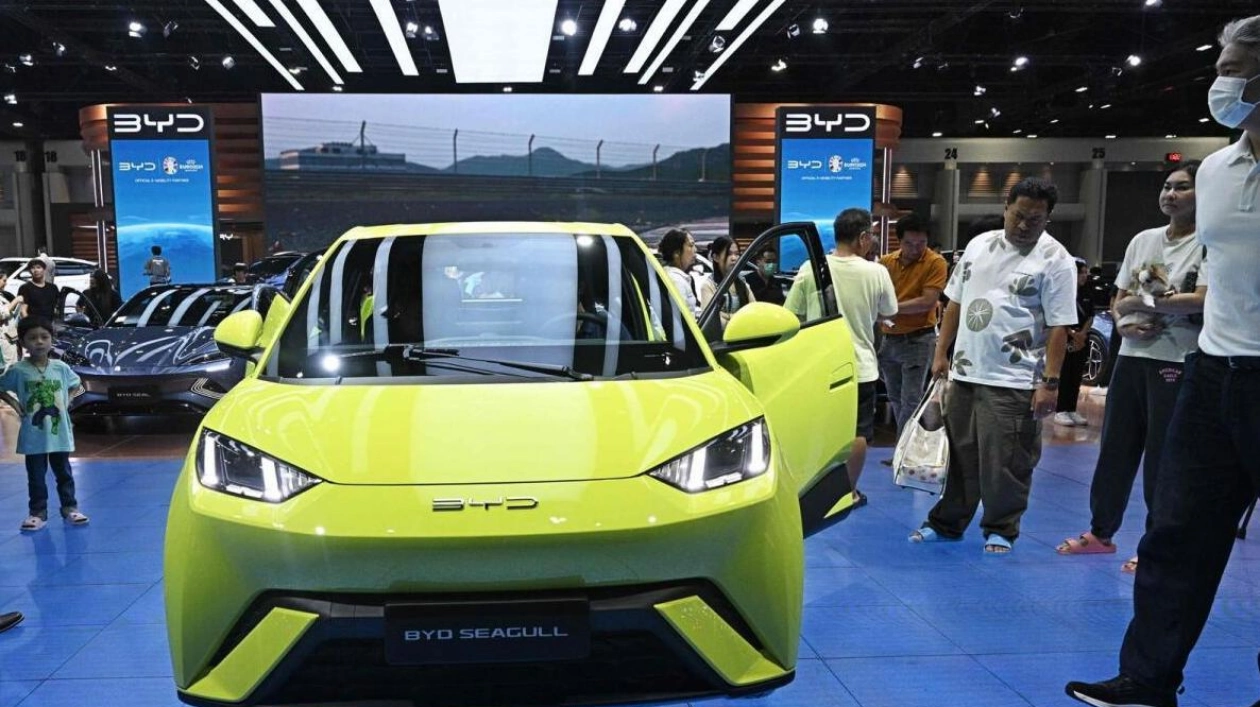On Thursday, the European Union imposed additional provisional duties of up to 38 percent on Chinese electric car imports due to "unfair" state subsidies, despite warnings from Beijing that this action could trigger a trade war. Brussels initiated an investigation last year into Chinese electric vehicle manufacturers to determine if state subsidies were disadvantaging European automakers. Since announcing the proposed tariff increase last month, which is in addition to the current 10 percent import duties, the European Commission has engaged in talks with Beijing, with China threatening to retaliate.
The EU's trade chief, Valdis Dombrovskis, stated that the investigation concluded that battery electric vehicles produced in China benefit from unfair subsidization, posing a threat to EU electric car makers. Consequently, the commission has levied provisional duties on Chinese manufacturers, including 17.4 percent for BYD, 19.9 percent for Geely, and 37.6 percent for SAIC. These rates were slightly reduced for Geely and SAIC from initially announced levels of 20 percent and 38.1 percent, respectively, following additional information from interested parties.
These duties will take effect from Friday, with definitive duties set to be implemented in November for a five-year period, subject to approval by the EU's 27 member states. Electric car producers in China that cooperate with the EU will face a tariff of 20.8 percent, while non-cooperating producers will be subject to a 37.6 percent duty. Despite recent talks between Chinese and EU trade officials, Brussels will continue to seek a mutually acceptable solution with China, emphasizing that any negotiated outcome must address EU concerns and comply with WTO rules.
Beijing has already indicated its intention to retaliate, launching an anti-dumping probe into pork imports last month, which threatens Spanish exports. Chinese media suggest further probes may be forthcoming. Chinese officials have criticized investigations targeting state subsidies in the green tech sector, including wind turbines and solar panels. The United States has already increased customs duties on Chinese electric cars to 100 percent, and Canada is considering similar measures.
Brussels must balance its defense of Europe's auto industry, which includes iconic brands like Mercedes, with avoiding a confrontation with China and achieving its carbon emission reduction targets. The EU aims to increase the adoption of electric vehicles by banning the sale of new fossil fuel-powered cars from 2035. Chinese-made vehicles now account for over 20 percent of EU electric car sales, up from around three percent three years ago. German and Austrian institutes predict that the higher taxes will reduce vehicle imports from China by 42 percent and could increase electric car prices in the EU by an average of 0.3 to 0.9 percent.
Germany, a major trade partner with China, is displeased with the EU's move. German auto manufacturers are concerned that retaliation could harm their operations in China. Germany's Vice Chancellor, Robert Habeck, recently visited Beijing in an attempt to prevent a damaging trade war. However, efforts to appease China, such as reportedly offering to lower tariffs to 15 percent, have been viewed skeptically by some in the automotive industry. In contrast, French auto makers have welcomed the tariffs as a means to level the playing field. Electric automaker Tesla, owned by Elon Musk, is the only company that has requested a specific duty rate based on submitted evidence.






